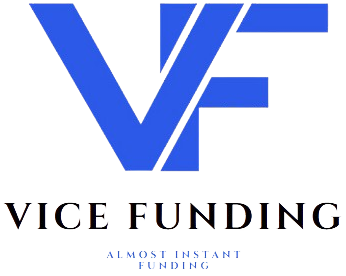
Business Working Capital Loan | Business Loans
Working Capital Loans
Quick Overview
- Short or Long-term availability of Working Capital Loans.
- Cover overhead and operational expenses for Working Capital Loans.
- Easy and fast to secure Working Capital Loans.
- Flexible terms for Working Capital Loans.
By Joe Marone | Last Updated: November 13, 2024
Business Working Capital Loan | Business Loans
Working Capital Loans
Quick Overview
- Short or Long-term availability of Working Capital Loans.
- Cover overhead and operational expenses for Working Capital Loans.
- Easy and fast to secure Working Capital Loans.
- Flexible terms for Working Capital Loans.
By Joe Marone | Last Updated: November 13, 2024
Working Capital Loans: What They Are and How They Can Benefit Your Business
Working Capital Loans are a vital resource for businesses of all sizes, particularly for small and medium-sized businesses that may need short-term capital infusions. These loans help cover operational expenses and bridge cash flow gaps, ensuring that a business can continue to function smoothly even during periods of financial shortfall. Whether you need to pay employees, restock inventory, or cover unexpected expenses, Working Capital Loans can help keep your business on track and fuel its growth.
What is a Working Capital Loan?
A Working Capital Loan is a form of financing that allows a business owner to access funds to cover day-to-day operational expenses. Unlike long-term loans that are used for major capital investments, Working Capital Loans are intended for short-term needs. Common uses include paying for payroll, inventory restocking, debt repayment, rent, and other essential costs. A Working Capital Loan helps businesses bridge the gap and sustain operations during financial fluctuations.
How Do Working Capital Loans Work?
Working Capital Loans are especially useful for businesses that experience seasonal fluctuations or irregular cash flow. For example, businesses that depend on seasonal sales, like a tourism-based shop, may need capital during off-seasons when revenue dips. A Working Capital Loan can provide the necessary funds to cover expenses during these slow periods, ensuring the business remains operational and avoids setbacks.
By securing a Working Capital Loan, a business can stay afloat during short-term gaps in cash flow, which may result from delayed payments, increased overhead costs, or unplanned expenses.
Reasons to Get Working Capital Loans
A Working Capital Loan is an excellent option when a business requires quick access to funds to cover short-term expenses. Here are some common reasons why businesses use these loans:
Unexpected Expenses: Unforeseen costs, such as equipment breakdowns or repairs, can disrupt operations. A Working Capital Loan can quickly cover these emergency expenses.
Growth and Expansion: If your business is expanding, whether in terms of hiring employees, buying new equipment, or opening a new location, a Working Capital Loan can provide the capital necessary to support these activities.
Seasonal Cash Flow Gaps: Businesses with seasonal cycles may find it difficult to maintain consistent cash flow. Working Capital Loans can help cover operational costs during slower months when sales are down.
Invoices and Payments: Delayed invoices or slow-paying clients can create a cash flow shortfall, which can be filled by a Working Capital Loan.
Pros and Cons of Working Capital Loans
Like any financing option, Working Capital Loans come with their own set of advantages and drawbacks.
Pros of Working Capital Loans:
Fast and Easy Access to Capital: Working Capital Loans often offer a quick application process, allowing businesses to access funds faster than traditional bank loans.
Lump Sum Payment: The full loan amount is typically disbursed as a lump sum, making it easy to cover large expenses at once.
Business Retains Full Control: Unlike equity financing, a Working Capital Loan doesn’t require giving up ownership or control of your business.
Cons of Working Capital Loans:
Higher Interest Rates: Working Capital Loans can come with higher interest rates compared to traditional loans, making them more expensive in the long run.
Collateral Requirement: Depending on the lender and loan type, you may need to offer business assets as collateral to secure the loan.
Risk to Personal Finances: If the business defaults on the loan, it can impact the owner’s personal finances, especially if they have used personal assets or guarantees.
Different Types of Working Capital Loans
There are several types of Working Capital Loans that businesses can consider based on their needs and qualifications:
Term Loans: These loans are typically repaid over a set period with a fixed interest rate, making them ideal for businesses that need a lump sum of capital for a specific project or expense.
Credit Lines: Similar to a credit card, a credit line allows businesses to borrow funds as needed and repay them on a flexible schedule. Interest is only paid on the amount used.
Invoice Factoring: This type of loan allows businesses to sell outstanding invoices to a lender in exchange for immediate cash. It’s useful for businesses that need quick access to funds while waiting for client payments.
Merchant Cash Advances: A merchant cash advance is based on future credit card sales, providing businesses with funds that are repaid via a percentage of daily credit card receipts.
Pros and Cons of Different Working Capital Loan Terms
Working Capital Loans come in different terms, each with its advantages and challenges.
Short-Term Working Capital Loans (Months):
Pros: These loans are great for covering cash shortages and are easier to qualify for.
Cons: They provide less financing, and the repayment term is shorter, which may result in higher monthly payments.
Intermediate-Term Working Capital Loans (Months to Several Years):
Pros: These loans offer more financing and a longer repayment term, which can ease the repayment process.
Cons: Interest rates may be higher compared to short-term loans.
Long-Term Working Capital Loans (Up to 7 years):
Pros: Long-term loans provide extended repayment periods, making the loan more affordable each month.
Cons: They are harder to qualify for, and interest rates may still be higher than traditional business loans.
Working Capital Loan Eligibility
When applying for a Working Capital Loan, lenders will evaluate several factors to determine your eligibility:
Credit Score: A business’s credit score plays a significant role in securing a loan.
Collateral: Many Working Capital Loans require collateral, including business assets or personal guarantees.
Business Revenue: Lenders will look at your business’s monthly revenue and cash flow to determine the loan amount.
Time in Business: Longer-established businesses with stable cash flow are more likely to qualify for favorable loan terms.
Businesses with bad credit or no credit history may face challenges, but online lenders are often more lenient, looking beyond just credit scores and offering unsecured loans with flexible terms.
Where to Apply for Working Capital Loans?
Working Capital Loans can be obtained from traditional banks or online lenders. While both options offer their own benefits, online lenders tend to offer quicker approval times and fewer qualification requirements. Online lending platforms can help small businesses compare loan options, streamline the application process, and select the best Working Capital Loan for their needs.
Benefits of Online Lenders:
More Options: Online lenders offer a wide variety of Working Capital Loan options.
Easy Comparison: You can quickly compare interest rates, repayment terms, and eligibility criteria.
Faster Application Process: Online lenders typically have faster approval times and quicker access to funds.
Bottom Line
Working Capital Loans are an essential tool for businesses, especially small and medium-sized ones, to bridge cash flow gaps and cover short-term expenses. There are various types of loans available, each with its own set of terms, and eligibility requirements. The application process for Working Capital Loans can differ based on the loan type, the business’s qualifications, and the lender. At Vice Funding, we help you compare multiple Working Capital Loan options to ensure you find the best fit for your business’s needs.
Most Popular Guides
Set your business up for financial success.

Ready to get started?
View your options today
Answer some questions in less than 3 minutes, no impact to your credit score, multiple offers YOU are in the driver’s seat!
